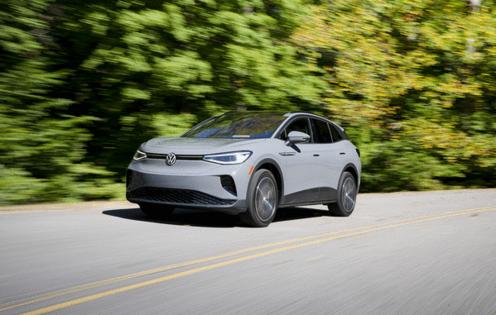How an obscure energy calculation could dramatically speed up America's EV future
Published in Automotive News
WASHINGTON — Overshadowed by the Biden administration’s new tailpipe emissions rule, the Department of Energy finalized changes last month to a little-known calculation that could dramatically impact automakers’ ability to sell gas-powered cars and trucks.
The changes to the calculation, known as “petroleum equivalency factor," will significantly cut the miles-per-gallon rating for electric vehicles, even after the Biden administration scaled back its initial proposal and added a phase-in period. After the phase-in ends in 2030, MPG ratings for EVs will be about 65% lower.
“I think very few people understand it, and understand the impact and the math behind it,” said Shea Burns, an automotive regulatory expert for AlixPartners. The change is “as impactful, if not more impactful” than upcoming fuel economy regulations.
The new math, widely opposed within the industry, stretches automakers in two directions. It pushes for even more EV sales to keep pace with President Joe Biden's climate-minded regulatory push. But it also slashes the massive fuel economy advantage for electric powertrains — a reality reflected by some automakers pivoting back to hybrids.
Currently, higher MPG ratings mean that EV sales go a long way toward satisfying automakers’ regulatory requirements for average fuel economy. By 2030, that will no longer be the case.
The Alliance for Automotive Innovation organization, a trade group representing all the major automakers in the United States except for Tesla Inc., strongly opposed the change.
“Our response is unequivocally ‘no,’ ” the Alliance wrote in a public comment on the original proposal. “The PEF should be maintained at its current level, or even increased to better reflect the petroleum savings associated with electric vehicles.”
Stellantis NV, in a public comment on the original proposal, said the rule would work against the Biden administration's stated goal of an electrified future by "dramatically reducing EV benefit to compliance — effectively becoming a single 'oar' that is simply rowing backwards on a boat that is otherwise focused in a common forward direction."
The Energy Department rule is closely related to the Department of Transportation’s Corporate Average Fuel Economy, or CAFE, standards. CAFE sets miles per gallon targets for automakers across their product offerings.
Regardless of a company's sales mix — between sedans, trucks, SUVs, EVs, hybrids, etc. — the average MPG across all new model-year sales must meet the federal target. If it does not, automakers face fines. Fiat Chrysler Automobiles, for example, was hit with $450 million in fines for the 2019 model year.
...continued
©2024 www.detroitnews.com. Visit at detroitnews.com. Distributed by Tribune Content Agency, LLC.












Comments